
Innovation & Sustainability Chemistry Consortium
An international multidisciplinary chemistry network providing a training and research environment for future international chemistry leaders in India and United Kingdom


An international multidisciplinary chemistry network providing a training and research environment for future international chemistry leaders in India and United Kingdom

India-UK ISCC- The Innovation and Sustainability Chemistry Consortium (ISCC) cordially invites you to attend a three-day virtual mini-symposium on sustainable chemistry on April 20-22, 2021.
In this three-day event, a series of talks on topics related to sustainability, such as electrochemical processes, flow chemistry, industrial safety, and environment will be presented by speakers from the United States, United Kingdom, and India. The speakers will be discussing the recent developments as well as the ongoing current research in the area of sustainable chemistry. The program is aimed at bringing together the scientific community in these interdisciplinary research areas and fostering mentorship or collaboration while addressing the global sustainability challenges.
This program is primarily meant for graduate students, young postdocs, and other researchers in the field of sustainable chemistry and related fields.
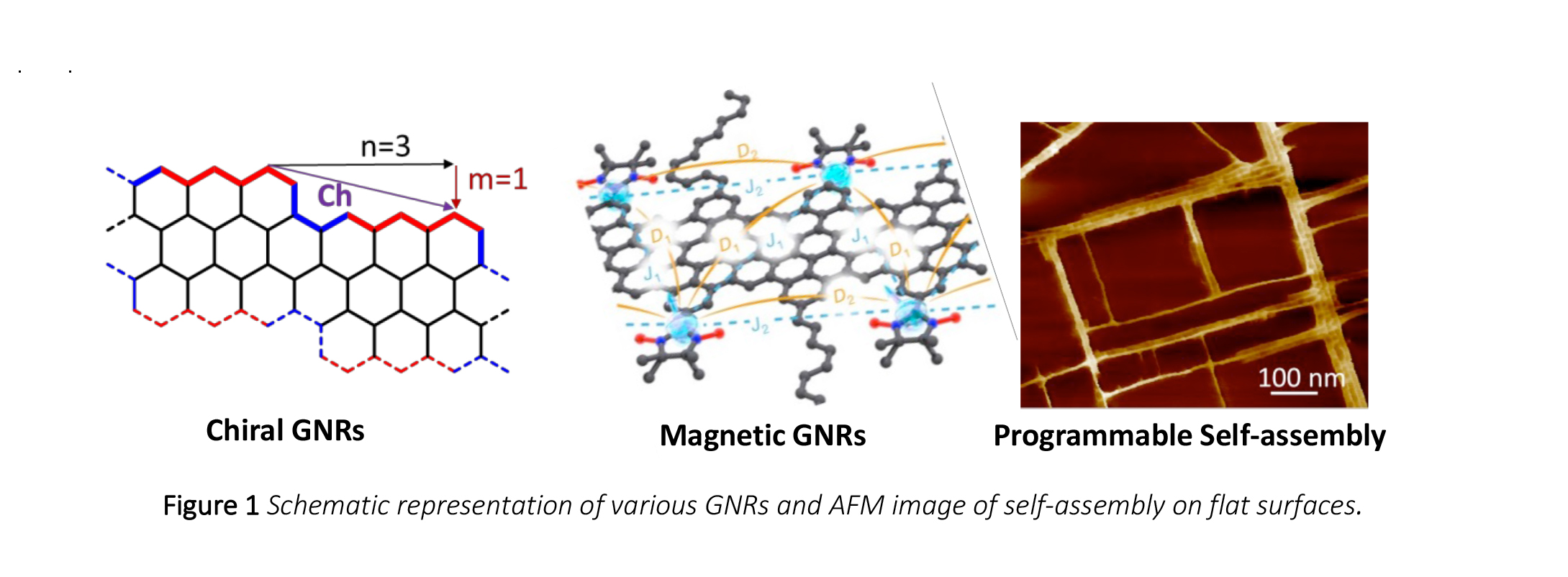 In this talk, I will discuss structure-property-function of Graphene nanoribbons (GNRs), a ribbon-shaped cut-outs of graphene with nanometre-scale widths. GNR’s properties, such as chemical stability, optical absorption and emission, charge-carrier mobility, and spin state, heavily depend on their geometrical features such as edge structure, width, and length. A series of GNRs from bottom-up approaches with required atomic control of the edges, different structures, sizes as well as edge doping will be discussed by demonstrating the possibility of fine-tuning their optoelectronic, magnetic and supramolecular
properties.
In this talk, I will discuss structure-property-function of Graphene nanoribbons (GNRs), a ribbon-shaped cut-outs of graphene with nanometre-scale widths. GNR’s properties, such as chemical stability, optical absorption and emission, charge-carrier mobility, and spin state, heavily depend on their geometrical features such as edge structure, width, and length. A series of GNRs from bottom-up approaches with required atomic control of the edges, different structures, sizes as well as edge doping will be discussed by demonstrating the possibility of fine-tuning their optoelectronic, magnetic and supramolecular
properties. Computational science is an enabling technology capable of accelerating growth and for offering detailed insights into problems in a given domain of research. For instance, computational quantum chemistry has been increasingly employed toward rationalizing the stereochemical outcome of catalytic reactions.1 In our laboratory, density functional theory computations are employed to gain insights into stereoselective reactions of immediate practical significance. The key objective of our research is to decipher the factors responsible for stereoselectivity and to harness such knowledge toward in silico design of novel asymmetric catalysts.
In general, the presentation would encompass a few contemporary themes in the domain of asymmetric multi-catalytic reactions. The process of chirality transfer from the catalysts to the developing stereogenic center(s) in the product could be understood with the help of our computed transition state for the enantio/diastereo-controlling step in the catalytic cycle. In keeping with the latest changes we have been trying to tap the potential of machine intelligence for computational catalysis. An overview of how machine learning models, built on intuitively chosen molecular descriptors, could be exploited in asymmetric catalysis as a way to develop high-throughput methods will also be presented.5 The contents are designed to cater to a broad and diverse group of audience; hence, the chemical insights would be emphasized, rather than a labyrinth of technical details.
Technologies to valorise post-consumer plastic are urgently needed to tackle plastic pollution and move towards a circular economy. Bio-based degradation and upcycling technologies are emerging as a promising strategy owing to their mild reaction conditions, high selectivity and catalyst sustainability. This short talk will highlight emerging biotechnologies for valorising plastic waste, including our development of a novel pathway in engineered Escherichia coli to convert post-consumer poly(ethylene terephthalate) into vanillin, a value-added molecule ubiquitous in the food and cosmetics industries.
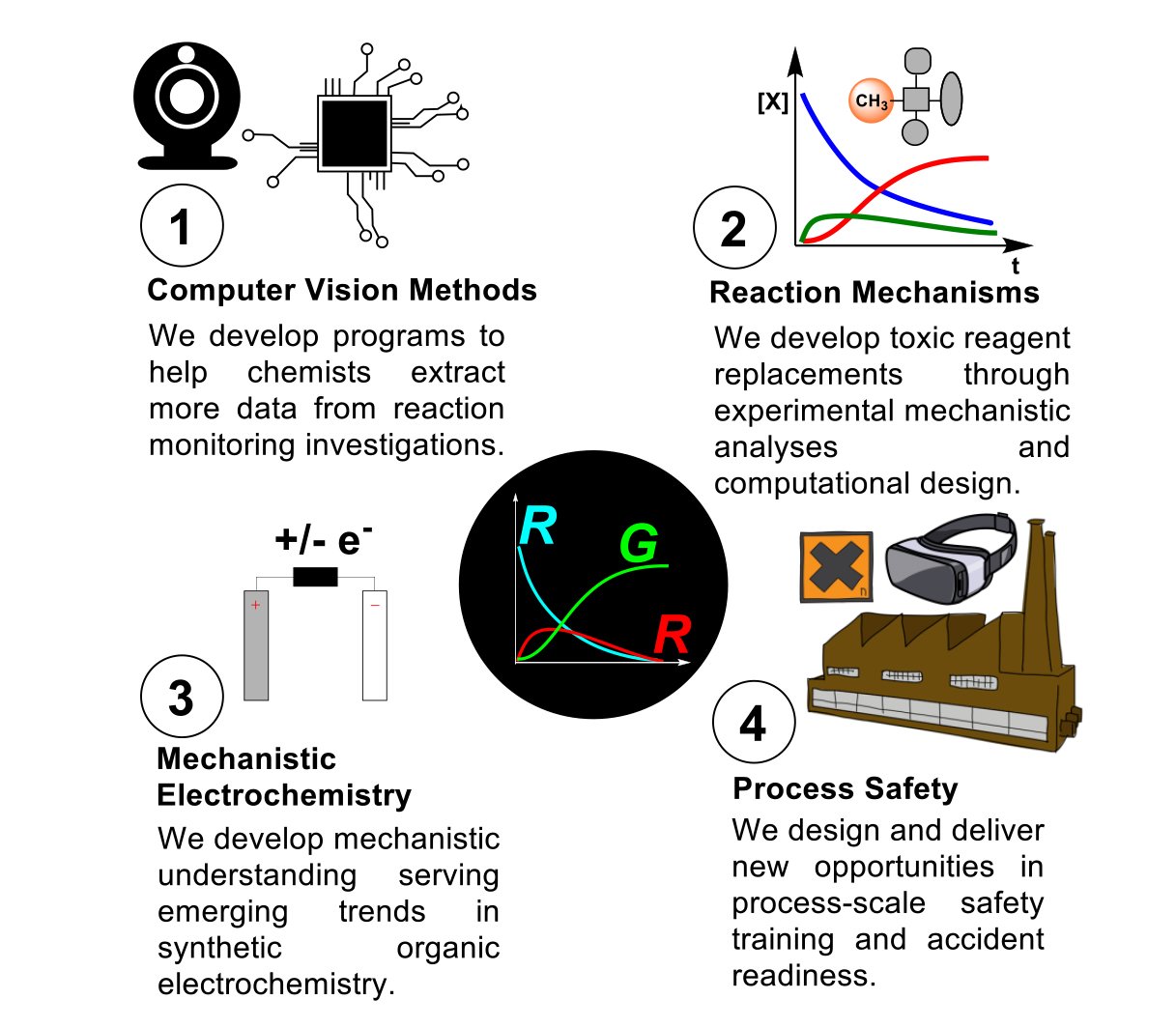
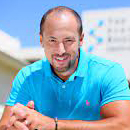
Phil received a B.S. (1997) from New York University and a Ph.D. (2001) from Scripps Research Institute. He was a postdoctoral associate (2001–2003) at Harvard University before joining the faculty of Scripps Research Institute, where he is currently a professor in the Department of Chemistry. Phil has published over 220 scientific articles, several patents, and has been the recipient of several awards and international distinctions, including the Corey (2015), Pure Chemistry (2010), Fresenius (2006), Nobel Laureate Signature (2003), Hirata Gold Medal and Mukaiyama Prize (Japan), the RSC award in Synthesis (UK), the Sackler Prize (Israel), and the Janssen Prize (Belgium). In 2013 he was named a MacArthur Foundation Fellow, in 2015 he was elected to the American Academy of Arts and Sciences, in 2016 he was awarded the Blavatnik National Award, and in 2017, he was elected to the National Academy of Sciences, USA. He has delivered hundreds of lectures around the world and consults for numerous companies such as Bristol-Myers Squibb, Gilead, Boehringer-Ingelheim, AstraZeneca, DuPont and TEVA, and is a scientific advisory board member for EsaEi,Abide, Nutcraker, Quanta and AsymChem. In 2016 he was appointed as an Associate Editor for the Journal of the American Chemical Society. He co-founded Sirenas Marine Discovery (2012) and Vividion Therapeutics (2016) and in 2013 he co-authored The Portable Chemist’s Consultant, an interactive book published on the iBooks store along with his graduate class in Heterocyclic Chemistry (viewable on YouTube). The Baran laboratory is committed to identifying areas of chemical synthesis that can have a dramatic impact on the rate of drug discovery and development. This is achieved both through the development of practical total syntheses of complex natural products and by inventing reactions which can dramatically simplify retrosynthesis. Outside of the lab, Phil enjoys spending time with his wife Ana and three young children (Lucia, Leah, and Manuel).

Dr Kavita Pandey holds a Master’s (2011) and PhD degree (2016) in Physics, both obtained in India. During her PhD she spent six months as a Newton Bhabha Fellow in Fraser Armstrong’s group at University of Oxford. She then went on to work at Ecole Polytechnique Federale de Lausanne (EPFL, Switzerland) to investigate the in-situ electrochemical processes inside a live battery using transmission electron microscope (TEM). She then re-joined the Armstrong group in 2018 as awardee of an SERB Overseas Postdoctoral Fellowship from the Indian Government. Her project in the Armstrong group brings together enzymology, catalysis and electronics, specifically by exploiting the power of impedancespectroscopy to investigate the internal charge- transfer properties of enzymes that enable them to be such highly efficient and reversible electrocatalysts. Currently, she is exploring the use of electrochemical tools alongside developing and applying methods for fabrication of advanced functional interfaces for energy storage, molecular detection, diagnostic, and imaging methodologies.

Dr Ashok Keerthi is a Ramsay Memorial and Presidential Fellow in the Department of Chemistry at the University of Manchester, UK. His research group is exploring the chemistry of nanographenes with precise edge structures and molecular transport in atomic-scale capillaries. He has graduated with M.Sc in chemistry from the School of Chemistry at University of Hyderabad (India). He obtained his PhD in Organic Materials from National University of Singapore (Singapore) under the supervision of Prof. Suresh Valiyaveettil. From 2013-2016, he was a postdoctoral fellow at Max-Planck Institute for Polymer Research, Mainz (Germany) working with Prof. Klaus Muellen. Until March 2019, Ashok was a research associate with Prof. Sir Andre Geim at the National Graphene Institute, Manchester. Ashok has 30 peer-reviewed publications in internationally leading journals and five of which are published in Nature, and two in Science Journals. His achievements are recognized by the award of: Researcher of the Year (2020) and Presidential Fellowship (2020) from the University of Manchester, Ramsay Memorial Fellowship (2019) from Ramsay Memorial Fellowships Trust, India’s DST-INSPIRE Faculty Fellowship (2016), Young Scientist (2015) and Max-Planck Postdoctoral Fellowship (2013) from the Max-Planck Institute.

Helen received her PhD in 1991 at Cambridge under the supervision of Professor Jim Staunton. She pursued post-doctoral work at Cambridge, and then at Imperial College London with Professor Steve Ley and subsequently with Dr David Widdowson. She joined the Department of Chemistry, University College London as a Lecturer in 1994, becoming a Senior Lecturer in 2002, a Reader in 2005, and Professor of Chemical Biology in 2010.
Her research is focused on the development of new sustainable chemistry approaches for use in synthesis. Several projects involve the discovery, optimisation and use of biocatalysts in single or multi-step pathways to construct single isomer biologically active molecules. In addition, we are investigating reactions and multi-step synthetic biology cascades in water and other green solvents.

Charlotte K. Williams is a professor of Inorganic Chemistry at Oxford University. From 2003-2016, she was a Chemistry faculty member at Imperial College London. She worked as a postdoctoral researcher at Cambridge University (2002-03, Andrew Holmes and Richard Friend) and at the University of Minnesota (2001-02, William Tolman and Marc Hillmyer). She obtained her BSc (1998) and PhD (2001) from Imperial College London, the latter supervised by Vernon Gibson and Nick Long. Her work has recently been recognised by an OBE for Services to Chemistry (2020), Macro Group UK Medal (2019), DeChema Otto Roelen Catalysis Medal (2018), The UK Catalysis Hub Sir John Meurig Thomas Medal (2017), the Royal Society of Chemistry Corday Morgan Medal (2016).

Raghavan B. Sunoj received early education in Trivandrum (India) before earning his Ph.D. from Indian Institute of Science Bangalore. After a couple of years of postdoctoral research at the Ohio State University (USA), he returned to India in the year 2003 to take up an independent position in the department of chemistry, IIT Bombay, where he is currently the class of 1998 chair in quantum computing and convener for supercomputing. He has published over 150 papers in journals of international repute. His research interests are on the computational chemistry and machine learning methods to asymmetric catalysis and reaction mechanism.
He is an elected member of the board of World Association of Theoretical and Computational Chemists (WATOC), Asia Pacific Association of Theoretical and Computational Chemists (APATCC) and an elected fellow of the Indian Academy of Sciences. He is on the editorial advisory board of Organic Letters, ACS Catalysis, and Chemical Science and on the editorial board of WIREs: CMS and Chemical Society Reviews. He has received a number of national and international awards such as Charles Coulson lecture (2017) from the University of Georgia, Athens, USA, excellence in teaching award from IIT Bombay, and the Shanti Swarup Bhatnagar Prize in Chemical Science for the year 2019.
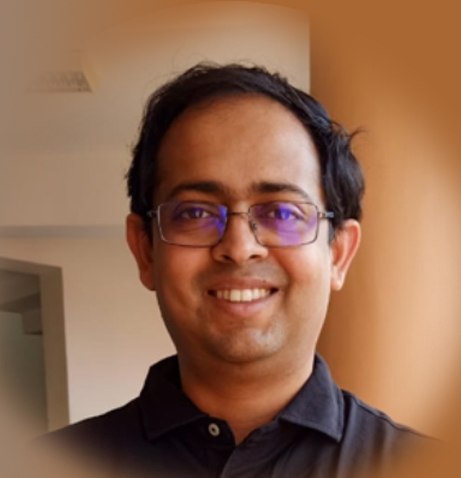
Dr Indra Sen is an isotope geochemist by training and obtained his Ph.D. degree from Florida International University (2010) in USA. He completed his postdoctoral training (2013) from Woods Hole Oceanographic Institution (WHOI, USA) and presently working as an Associate Professor in the Department of Earth Sciences in Indian Institute of Technology Kanpur. Indra Sen serves the Editorial Advisory Board of Environmental Science and Technology.

Joanna Sadler is a Chancellor’s Fellow at the Institute of Quantitative Biology, Biochemistry and Biotechnology at the University of Edinburgh. Her multi-disciplinary research combines synthetic biology and synthetic chemistry in novel technologies to degrade and upcycle post-consumer plastic waste. This involves developing microbial cell factories and biocompatible chemical transformations to produce high value small molecules from plastic.

Marc completed his Masters in Chemistry at the University of Strathclyde in 2011. In 2015, he completed his Carnegie Trust-sponsored PhD in Chemistry at Strathclyde. From 2015-16, Marc was a postdoctoral research associate at the University of Edinburgh. During that time, he was inducted into the SciFinder Future Leaders in Chemistry programme. In 2016, Marc won the prestigious Leverhulme Trust Early Career Fellowship and rejoined the Department of Pure & Applied Chemistry at. This position was supported by GlaxoSmithKline, and he was thus the first Strathclyde-GSK Early Career Academic. In 2018, Marc was selected to participate in the Scottish Crucible leadership program, the Merck Innovation Cup, and was part of the Converge Challenge Entrepreneurship Competition Top 30. In 2020, Marc became a CPACT-supported Research Fellow and then Lecturer for Innovation in Education at the University of Bristol. Most recently, Marc was awarded a UKRI Future Leaders Fellowship, joining the Department of Pure & Applied Chemistry at Strathclyde in 2021.He holds a visiting lectureship at the University of Bristol, and a visiting Enterprise Fellowship in the Hunter Centre for Entrepreneurship at the University of Strathclyde.
Marc interests include physical organic chemistry, computer vision, cheminformatics, virtual reality, process safety, and the psychology of the imposter phenomenon.
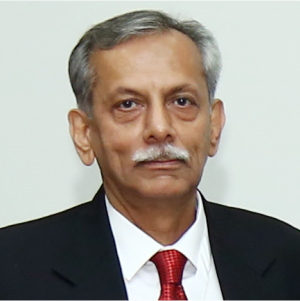
Vijay Kirpalani is the CEEO, Pi-Process Intensification Exp.LLP and Founder President of the Flow Chemistry Society-India. Chemical Engineer with 40+ years in Nuclear Fuel processing, Petroleum Refineries, Agrochemicals, Bulk & Fine Chemicals, APIs & Pharmaceutical Plants.
Experience: BARC (Bhabha Atomic Research Center), Bharat Petroleum (Refineries), IPCL (Indian Petrochemicals Corporation Ltd.), UPL., ChemSphere Consultants P. Ltd., and as Technical Director of major pharma companies, CEEO Pi-Process Intensification Synthetic Chemistry & Bio-transformations: Extensive repertoire of process technologies, developed and commercialized across over 120 green-site plants with >200 processes in 14 countries; clientele such as Gist Brocades (Holland), GSK (India), Harbin Pharma (China), Fermion OY (Finland), Cipla Ltd., Dr Reddy’s Labs Ltd., etc.
Expertise & Current focus: Continuous Manufacturing using Process Intensification, Flow Chemistry, Bio-catalysis. Process Design & Execution (of cGMP HPAPI / API / Pharma Formulation, Chemical, Fine-Chemical, Biotech & Nanotech Facilities), implementation of QbD and PAT techniques. Design & manufacture of 3-D printed Flow Reactors, HiGee continuous extraction & distillation systems and continuous Dryers.
30 continuous plants commissioned using PI techniques in recent years, including a “Continuous multi-product 5 reaction-step API manufacturing plant” for a pharma major using Flow Reactors.

Dr Stephen Hilton was appointed to a lectureship at UCL School of Pharmacy in October 2011. Prior to this, he was an RCUK Academic Fellowship in Cancer Chemotherapy at the London School of Pharmacy following his appointment in October 2008. He graduated in Chemistry with Management from King’s College London in 1996 which was followed by a PhD in Organic Chemistry at King’s College and at Kingston University under the supervision of Professor Keith Jones. Subsequently he worked as a postdoctoral researcher under Professor William Motherwell at University College London for 4 years. This was followed by a two year postdoctoral fellowship at The Institute of Cancer Research working with Professor Ted McDonald, Professor Keith Jones and Dr Ian Collins on a range of anticancer drug discovery projects.
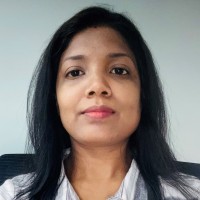
Dr Simantini Nayak is a Scientist at the CSIR-IMMT, India. Her research interests include materials development and mechanistic understanding of energy storage, fuel cells, and electrocatalytic surface reactions. She received her MSc from NIT Rourkela, India. She pursued her PhD degree in Chemistry from the Max-Planck Institute for Iron Research (MPIE), Dusseldorf, Germany. She worked with Kylie Vincent at the Department of Chemistry, the University of Oxford as a postdoctoral fellow. Later she became a Marie Skłodowska- Fellow in the same department. She also had over a year of industrial experience as a Research Scientist in a Carbon-Ion-based Supercapacitor company (ZapGo) prior to joining her present affiliation. She has 16 publications in peer-reviewed journals and 1 book chapter.